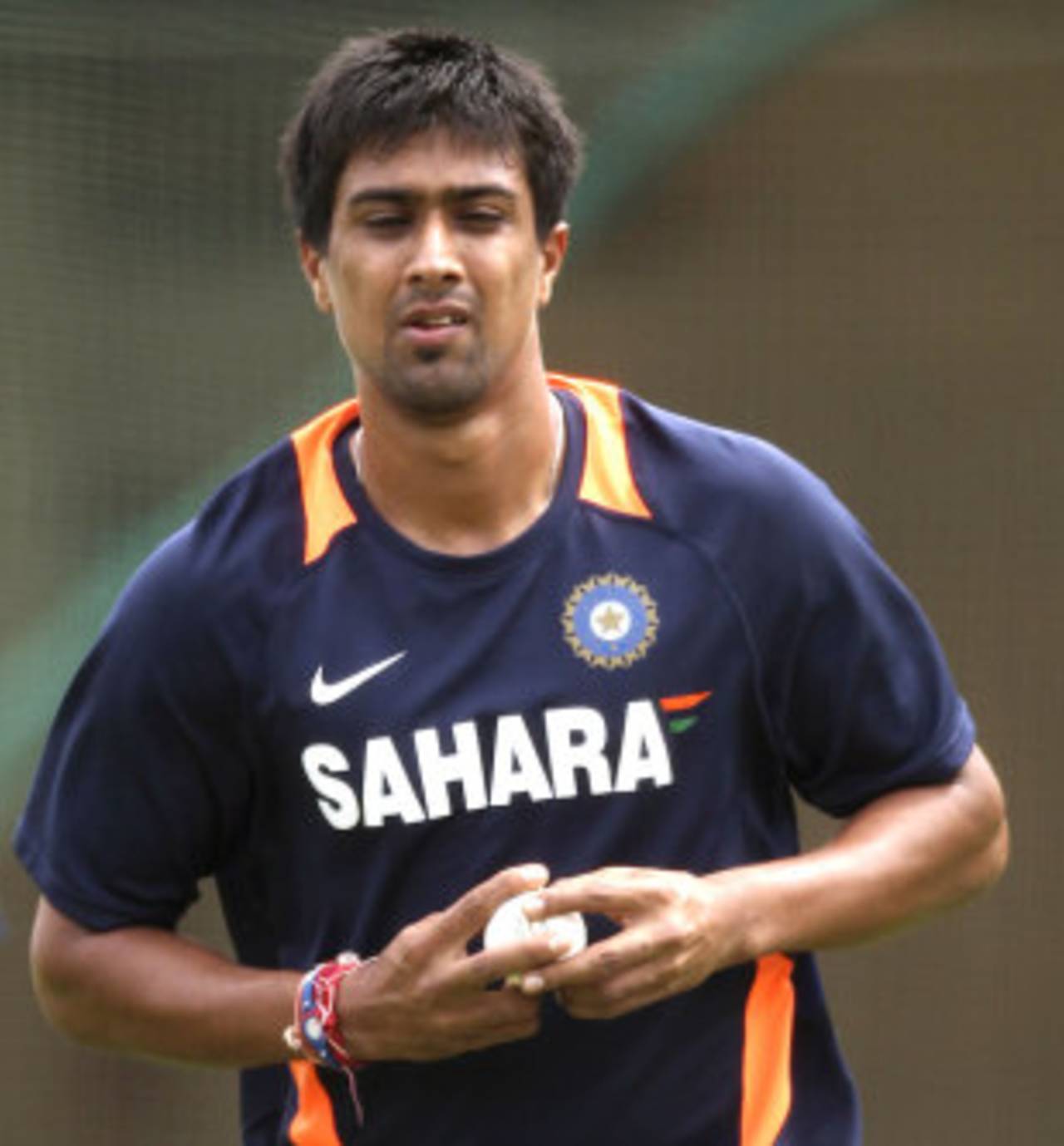The BCCI is likely to tread lightly on the
Rahul Sharma drugs case, given the ambiguity in its rules and confusion over the specifics of what he is alleged to have consumed, and in what quantity. Rahul is currently with the India squad in Sri Lanka and, though he didn't play the first ODI on Saturday, he was seen practising with the team before the game.
ESPNcricinfo has learnt that the Indian board has contacted the police to ask for the specific test reports on the two cricketers - the other being South Africa's
Wayne Parnell - but was unsure of how quickly it would receive them. Rahul, an official said, would be eligible to play for India and not be recalled from the five-match ODI series in Sri Lanka until the board had more detailed information.
Rahul and Parnell, both part of the Pune Warriors IPL franchise, are
alleged to have tested positive or banned substances following a raid by the Mumbai police at a rave party on May 20. They were tested for cannabis and methylenedioxy/methylamphetamine (MDMA) or Ecstasy, but the police have not specified which of the drugs they tested positive for.
Legal experts say they can be charged under the Narcotics, Drugs and Psychotropic Substances Act 1985. The penalty for the consumption of cannabis or MDMA is six months in jail or a Rs10,000 fine or both. However, this would be under the Indian legal system - a formal charging, indictment and conviction - and hence subject to delays and the possibility, if convicted, of an appeal.
The two drugs are on the list of prohibited substances in the BCCI's anti-doping code; cannabis is under a category called Cannabinoids and MDMA, under stimulants. However, they fall under the category of 'in-competition prohibited substances' and on the day of the raid Rahul and Parnell were both out of competition, their team having already ended its IPL campaign. Parnell was due to leave India the following day and Rahul due to return home to Chandigarh soon after.
The BCCI official said the board was waiting for details of the quantity and precise nature of the drugs the players tested positive for, to see if the positive tests could have come from "passive smoking" in an environment where cannabis was being smoked. "That is why the quantity of the consumption is important in this case," the official explained.
A Pune Warriors team-mate said he was "very surprised" to hear of the positive test reports as both Rahul and Parnell were not seen drinking or smoking during the seven weeks of the IPL. "Ecstasy is consumed in a pill form and it is easy to spike drinks with them," he said.
Rahul's Punjab coach Vikram Rathour told Hindustan Times: "It is hard for me to believe knowing Rahul, who doesn't even drink beer … it is surprising."
The Pune Warriors management said both players had been "released" from the team and would contemplate any action following the positive tests based on the direction of the BCCI.
Mumbai deputy police commissioner Pratap Dighaokar told PTI on Friday that the two cricketers had belonged to a group of 44 people who tested positive out of the 92 detained following the raid.
There have been mixed reactions to the news that Rahul Sharma and Wayne Parnell tested positive for recreational drugs while at a rave party in Mumbai on May 20. As with almost anything dealing with Indian cricket, the reactions occupy extreme positions on either side. As of now, the only facts that are known are that the two players have - according to the police - returned positive results when tested for cannabis and MDMA or ecstasy, both recreational drugs; the alleged offence came at a time when they were not in competition (their IPL involvement was over) and the charges are yet to be formally pressed and will then run the full gamut of Indian law. Including, if convicted, the right of appeal. Those are the facts of the case at this point but there are several missing elements, which could reduce or remove culpability even in the face of a positive sample. For example, the quantity of the substance found is not yet known; a small quantity can be explained by passive smoking (in the case of cannabis). Nor is it clear whether they have tested positive for MDMA, which can be mixed in drinks.
In this context, the reactions of the BCCI and of Pune Warriors - the IPL franchise that employs both players - have been temperate and rational. In essence, their stand is this: let the law take its course, let us get the facts and then act. How they will act is also flexible: though both drugs fall under the BCCI's list of prohibited substances, they relate only to in-competition offences. For reference, it can look at England's Football Association, which hands out a minimum of a warning and a maximum of six months' suspension for a first offence of this nature. At the moment, the Mumbai incident is a potential violation of the law of the land and so the case must rest with the police. Both players have maintained their innocence from the day the story broke, and in any case are innocent till proven otherwise. The BCCI's next step will be important, and will be watched by the rest of the cricket world: never the most dexterous of organisations, it must balance its stealth with full application of the law if the charges are proved. Till then, the waiting game is the best option.
Jayaditya Gupta
Sharda Ugra is senior editor at ESPNcricinfo
